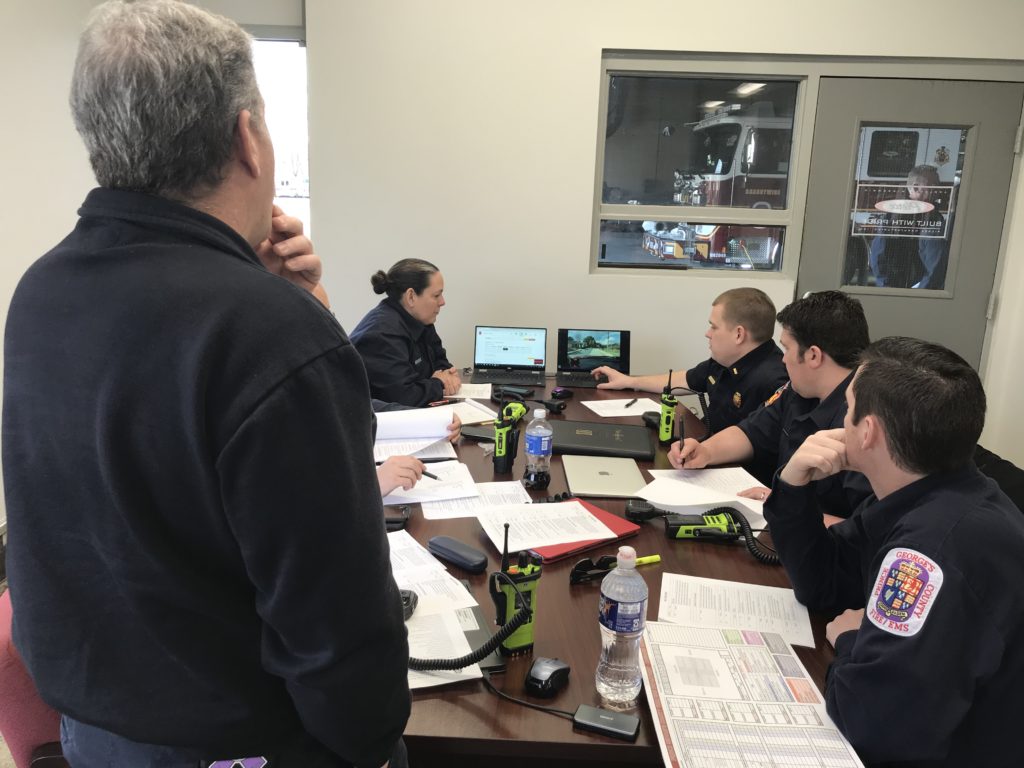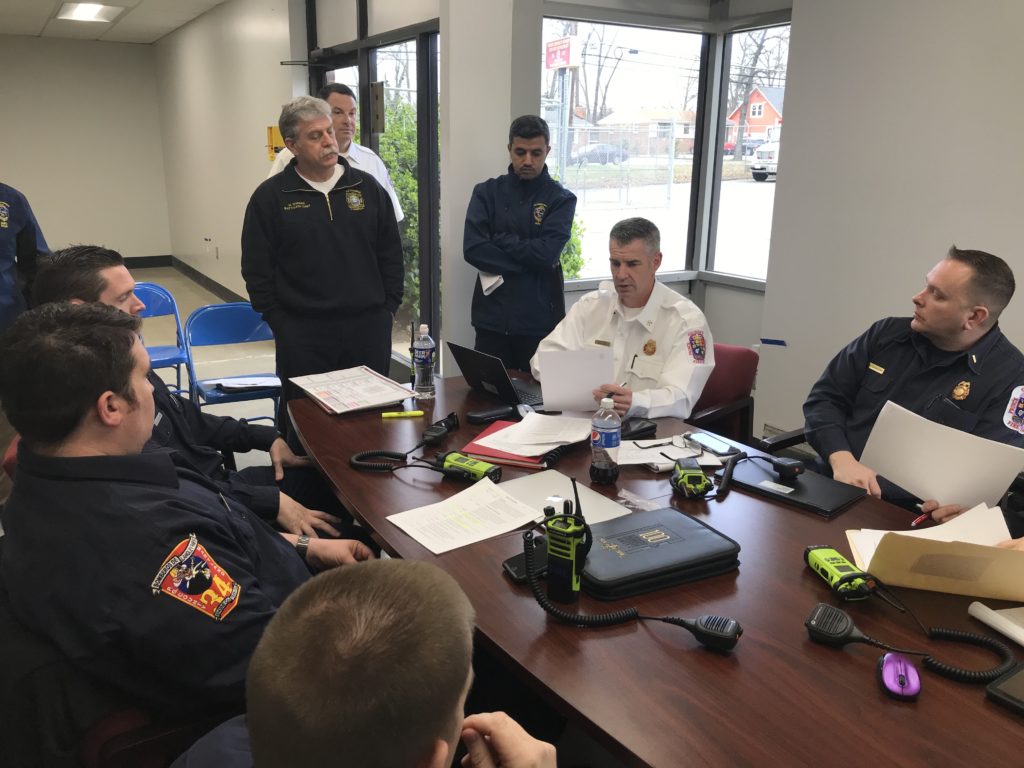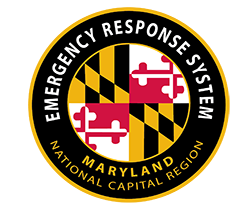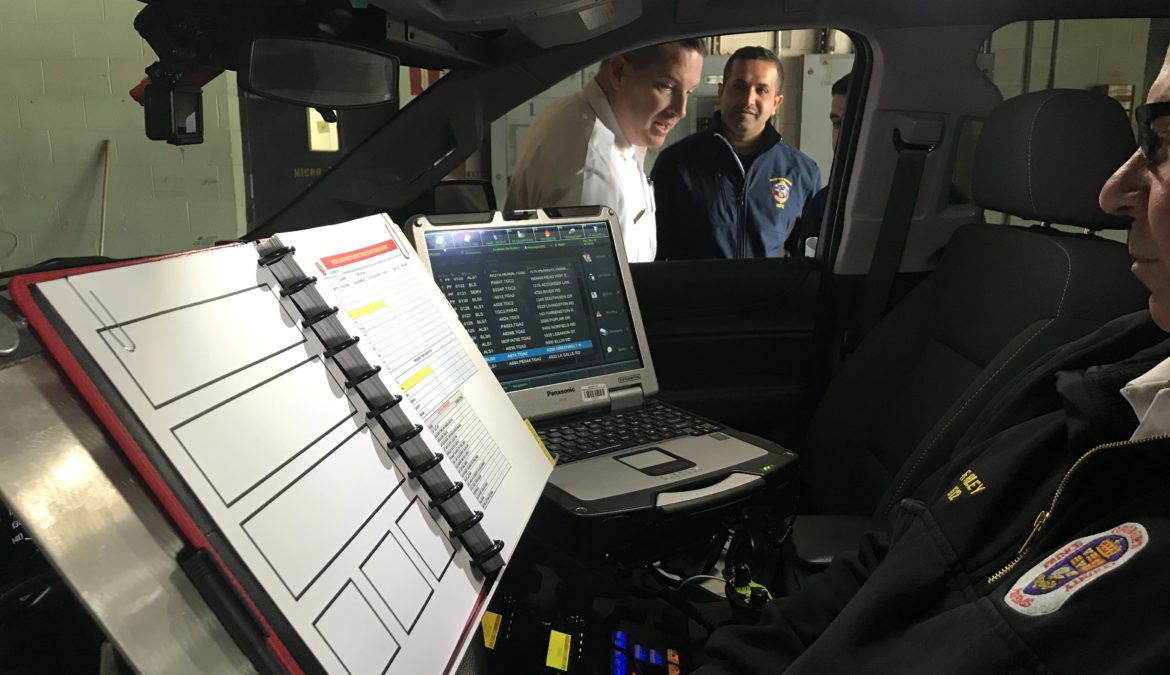A capability is the ability to complete a critical mission or function through a set of tasks, at a specific time, under a set of conditions, to a set standard.
Building a capability is a long and arduous process. Moreover, sometimes the direction can be ambiguous and unclear but when the results are achieved, the victory is sweet.
The Maryland-National Capital Emergency Response System (MDERS) supports the integration of police, fire/EMS, hospitals, public health, and emergency management for coordinated response to emergency incidents. Through strategic planning, information sharing, training and exercising, and equipment acquisition, MDERS creates response capabilities. One such capability is the recent collaboration of MDERS with the Prince George’s County Fire Department/EMS (PGFD) in the development of the Command Officers Professional Development Program (COPD).
In 2017, PGFD participated in capability development workshops. Each workshop assessed the department’s ability to respond to an active shooter incident. This process followed the Homeland Security and Exercise Evaluation Program (HSEEP) framework. Each workshop group responded to a set of facilitated questions to identify needs in the areas of planning, organizing, training, equipping, exercises, and evaluating (POETEE).

A report from the workshops was developed and presented to key PGFD leaders. The results identified three areas of need. First, PGFD supervisors and managers require clear direction on policy related to their response to active violent incidents. Second, personnel require more situations and repetitions (scenarios and practice) to build experience, confidence, and to enhance their decision making capacity at emergency incidents. Finally, workshop participants identified that they wanted localized training. It was important for them to have learning opportunities at their respective fire stations.
Working with MDERS staff, tabletop exercises were developed. These exercises focused on the initial actions of the first arriving units. A set of scenarios were developed, including a single-family home fire, a multi-casualty incident, and a garden apartment fire. The exercise objectives were threefold: incident command, allocation of resources, and medical management of casualties.
More than 100 PGFD personnel participated in this process. The results from the tabletop exercises validated the initial report from the earlier workshops. PGFD leadership then requested that MDERS provide assistance to design a command officer professional development program to address this identified gap.
MDERS strategized with PGFD to establish, goals, objectives, and deliverables. MDERS staff established three PGFD workgroups, each with an individual task, including writing policy, researching equipment specifications, and identifying an appropriate simulation application for the department.

PGFD and MDERS consulted with regional partners for assistance in carrying out those tasks. Representatives from the Montgomery County Fire Rescue Service (MCFRS) and Loudoun County Fire Department (LCFD) provided guidance. This included on-site visits to observe and gather best practice information. These partners also aided in identifying policies, procedures, methods, and lessons learned in command competency programs.
Following those visits, the work groups identified the necessary resources. This included personnel, software, and equipment. Additional research identified Sims U Share as the preferred simulation software for command competency and incident management. This application uses simulation to create events that firefighters and EMS clinicians may encounter. It combines real world fire and rescue incidents with gaming elements. This cloud based user-friendly application allows members to easily build custom scenarios that can be viewed or shared within the department.
There is a set of knowledge, skills, and abilities (KSAs) required by incident commanders. Among those KSAs is the capability to quickly and effectively manage incidents and allocate resources. The COPD is a success story in moving PGFD forward in incident command, resource allocation and the provision of training at the station level.
This process required communication, collaboration and coordination with multiple agencies to deliver on time, task, and target. PGFD Deputy Fire Chief Brian Frankel stated that, “This is one of the most important steps the department can invest in for the future of our personnel, communities, and region.” MDERS Director Luke Hodgson reflected, “Refining command competency will create a culture of incident management that will be applicable on every incident and will positively impact all of our residents and visitors, while protecting our response personnel.”
If you would like additional information about this program please contact Mike McAdams, Program Manager at Michael.mcadams@maryland.gov.


